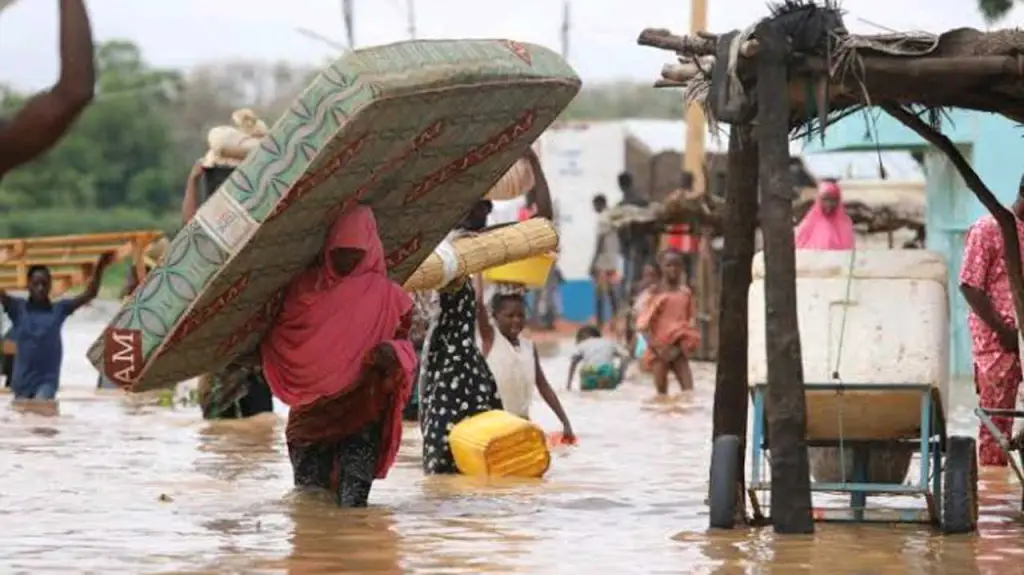The Federal Government, on Thursday in Abuja, inaugurated the Presidential Committee for the Development of a Comprehensive Plan of Action for preventing flood disaster in the country.
President Muhammadu Buhari had mandated the Minister of Water Resources, Suleiman Adamu, to fashion out ways of preventing flood disaster in Nigeria within 90 days.
Adamu said it was no longer news that the recent 2022 floods had thrown several communities into hardship, submerged homes and destroyed properties estimated at billions of naira.
He noted that flooding incidents in Nigeria had been caused mainly by overflow of silted rivers and poor drainage systems from localised rainfalls, generating flash flooding in urban areas.
“Members of the presidential committee being inaugurated today are seasoned professionals and bureaucrats who have been selected from across the MDAs, states and professional organisations.
“You have been adjudged to have, in one way or the other, contributed immensely to the water resources, environmental, agricultural and other sectors of the country.
“I urge you to consider your nomination into this committee as a privilege and another opportunity to serve and contribute toward safeguarding the lives and wellbeing of our people who can be affected by floods in future,” he said.
Also speaking, the Minister of Health, Dr Osagie Ehanire, said that the impact of climate change on humans and the environment had been predicted to get worse in coming years, following the rise in global temperature.
He said that the impact of flooding on the health sector could increase water-borne diseases, saying the committee must proffer solutions toward health promotion and disease prevention.
NAN reports that the steering committee members included: Ministers of Health, Environment, Agriculture and Rural Development, Transport, Works and Housing, Humanitarian Affairs, Disaster Management and Social Development as well as their respective permanent secretaries.
Others were: representatives of Jigawa, Adamawa, Anambra, Ogun, Bayelsa and Kogi state governments.
The Technical Working Group included: Directors-General of National Water Resources Institute, Nigeria Hydrological Services Agency, representatives of Nigerian Society of Engineers and Nigerian Academy of Engineering, among others. NAN


